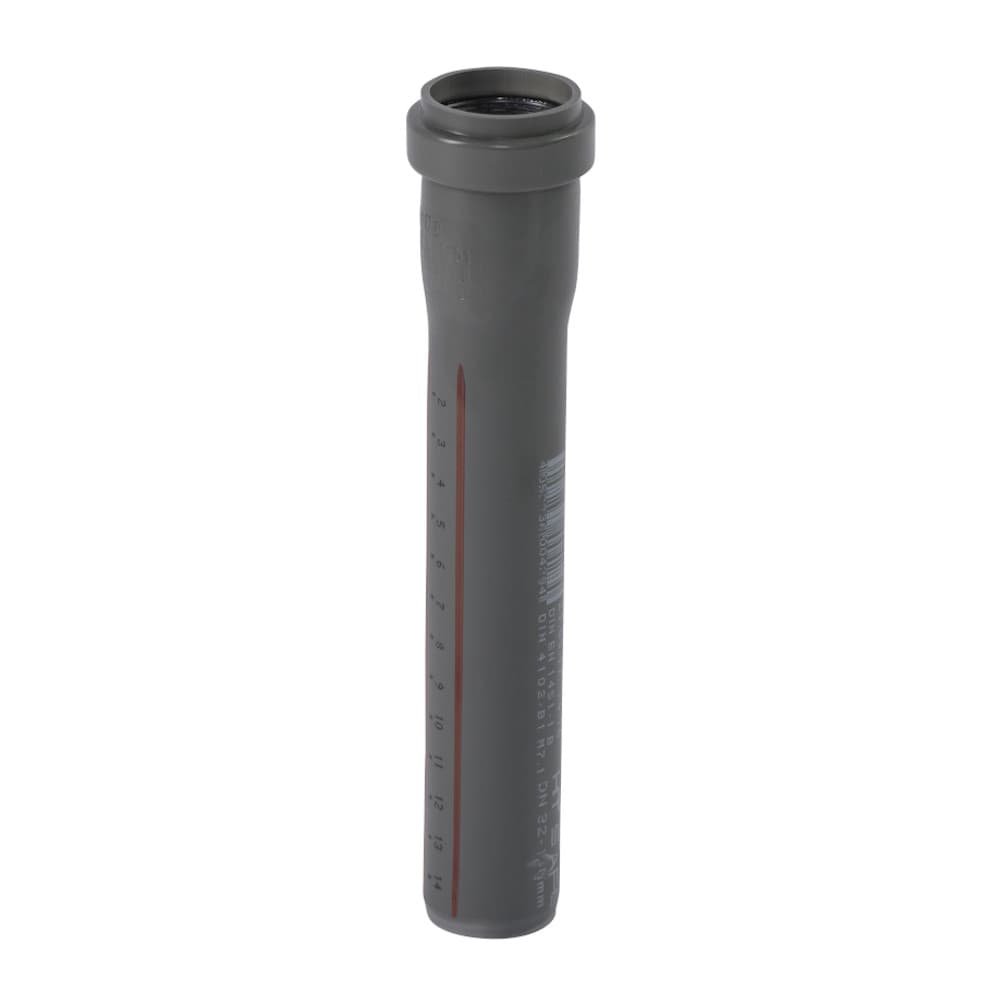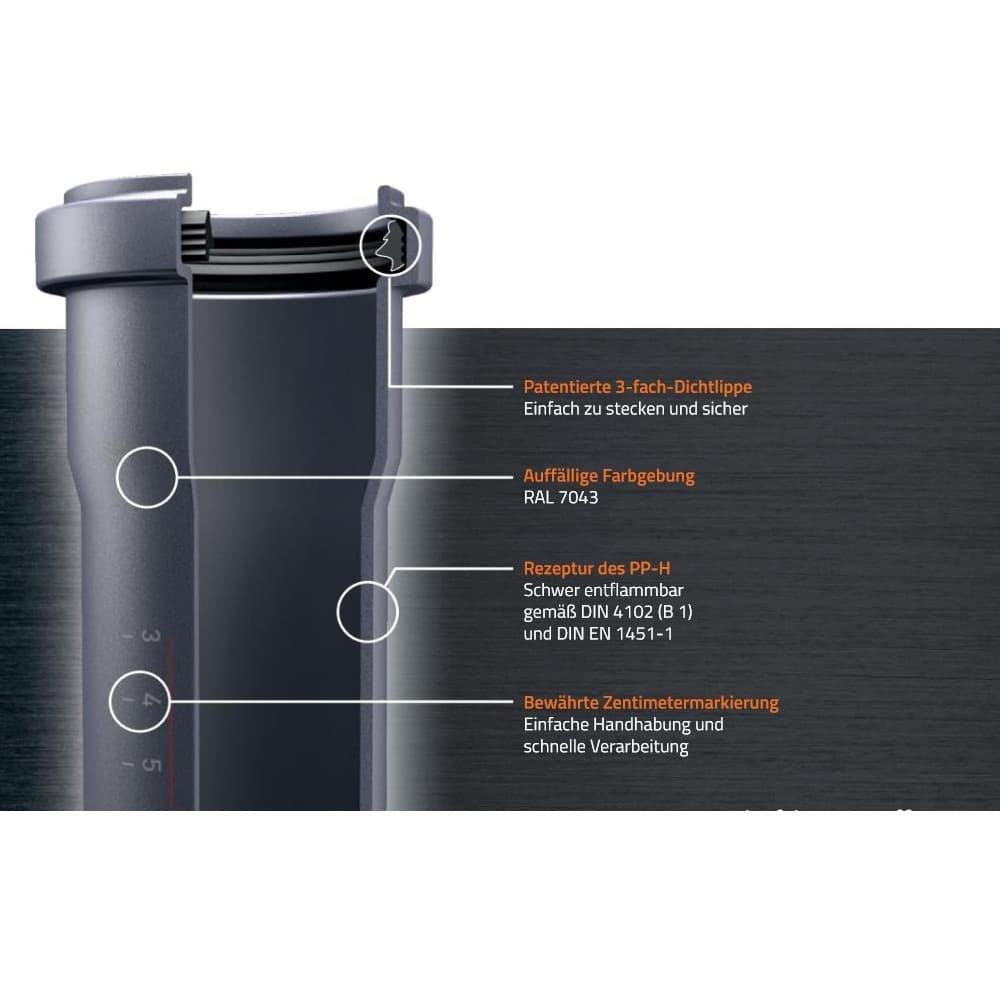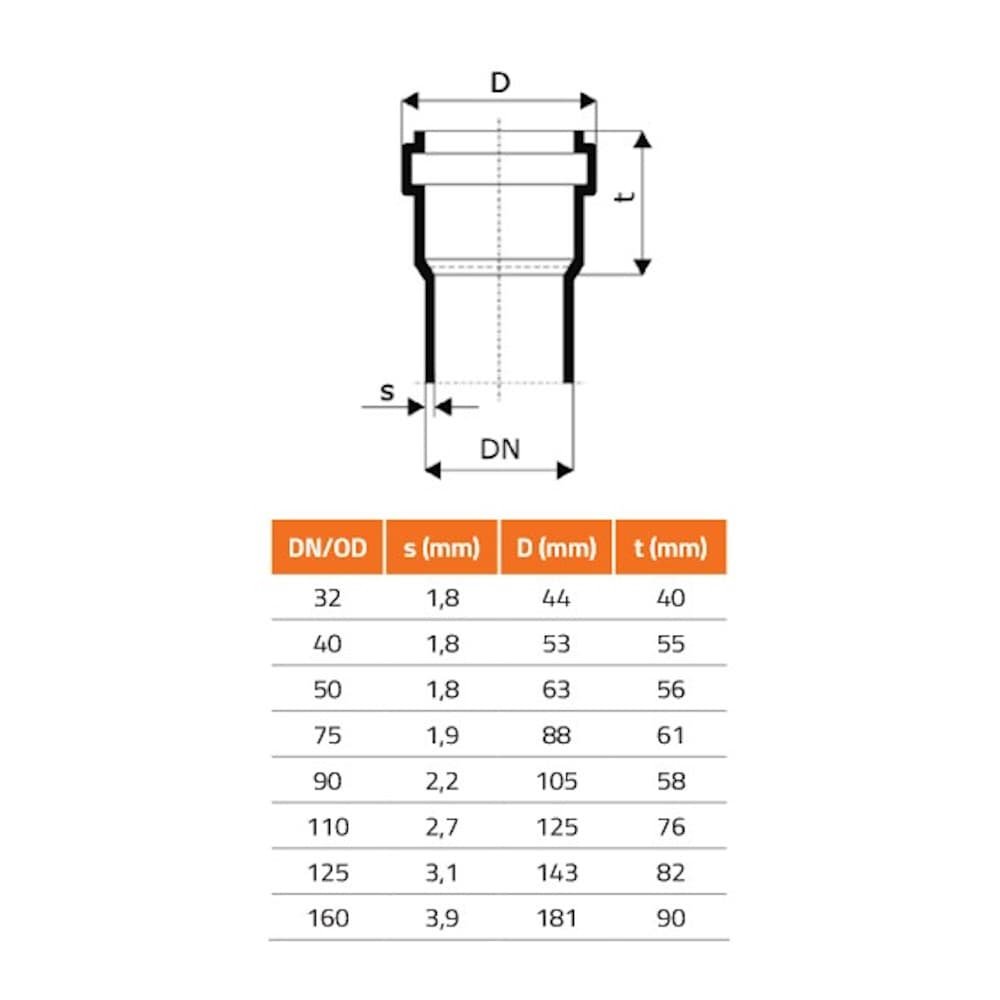HTsafe DN/OD 90
This is how house drainage works today
Quick processing, secure sealing, optimal noise behavior,
- Perfect price/performance ratio
- Manufactured according to DIN EN 1451-1
- Made in Germany
- Extremely durable
- Simple and quick processing
- Patented triple sealing lip
- Interchangeable NBR seal
- Very good sound insulation
- Proven centimeter marking
- Flame-retardant B1
- Approved with the most common fire protection collars from various well-known manufacturers
- Approved with our pull-out protections up to a maximum pressure of 2.0 bar
- Also suitable for central vacuum systems
Application:
Drainage within buildings as waste water pipe, rainwater pipe, ventilation pipe
(see also areas of application: DIN 1986-4).
This pipe system can be easily inserted, installed, mounted, and laid using socket connections into the chamfered pipe end (spigot end).
During assembly, the pipe is pulled out again by one centimeter after complete insertion to create an effective length compensation.
When laying the pipes and fittings, it must be ensured that wastewater does not back up or solid parts accumulate and clog the pipe system.
A minimum slope of 2 cm per meter is required. HT branches and other fittings are therefore equipped with a maximum angle of 87 degrees (3-degree slope) to the main pipe.
The diameter of the HT drainage system should be neither too small nor too large. Too large diameters reduce sufficient floating depth of solids. Deposits and blockages could be the result. Too small pipe diameters pose the risk that the pipe will fill completely. The resulting airtight closure can suck out the odor trap. Odors from the downpipes could rise from the drain into living areas.
HT pipes can be cut to any length with a metal or fine saw. A miter box can be used. Saw edges must be beveled to achieve a proper connection between the HT pipe and subsequent parts. Burrs inside the pipe must also be removed to prevent damage to seals and avoid accumulation of deposits.
Material properties
Pipes and fittings made of polypropylene with the ability to withstand hot water, manufactured according to DIN EN 1451-1.
- Temperature range: -20° to 90°
- high chemical resistance; pH 2-pH 12 (acidic-alkaline) stable against biogenic sulfuric acid corrosion
- high abrasion resistance of polypropylene, thus longevity and operational safety
- excellent impact strength and toughness
- low tendency to crack formation and crack propagation
- robust behavior under mechanical stress (e.g., high-pressure flushing)
- smooth surfaces, optimal hydraulics
- no incrustation, deposits cannot set
- self-cleaning, resulting in large maintenance intervals









